Coronavirus updates: PM flags end to hotel quarantine, 2 NSW cases
Prime Minister Scott Morrison has revealed international travellers from “safe locations” may be allowed to skip hotel quarantine under a more “flexible” long term plan.
NSW
Don't miss out on the headlines from NSW. Followed categories will be added to My News.
Bondi Beach will be slapped with new restrictions to handle an expected surge of summertime crowds.
Waverley Council announced its plan for managing the popular outdoor spaces under its command, including the beaches at Bondi, Bronte and Tamarama, and walks along the coastline that usually attract throngs of visitors on beautiful days.
Waverley Mayor Paula Masselos said in a press release: “Our plan involves managing access to the beaches if crowds begin to reach capacity and working with a range of agencies to encourage people to visit other public spaces or facilities as numbers approach safe limits.”
NSW authorities fear a surge of visitors to recreational spaces might lead to a resurgence of COVID-19 cases after the state has hit a promising stride in managing the coronavirus.
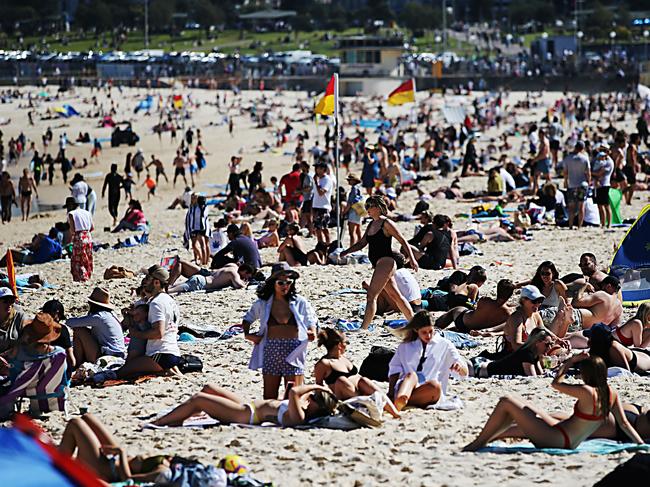
The new plan outlines strategies to be used in case beaches reach capacity. Access points to beaches and walks will be blocked by barriers, and council staff will inform newcomers that the spaces are full. The council will also request that police attend to monitor the situation.
However, people who are already on the beach or walkway will be allowed to remain even if the space is nearing maximum capacity.
The plan will be subject to continuous review as public health advice and orders change over time.
Beaches will be patrolled between 6am and 7pm from this week until the end of May.
PM FLAGS END OF HOTEL QUARANTINE FOR SOME
Health officials are considering a more “flexible” system for international travellers, allowing those returning from low COVID-19 risk countries to quarantine at home, instead of in a hotel.
And Western Australia will ease entry restrictions on NSW travellers from October 5, bringing them into line with all states except Victoria. It means travellers can enter WA if they get an exemption.
Prime Minister Scott Morrison revealed yesterday that home quarantine will “play a role in the future” as Australia’s international borders open up to “safe locations”.
“Whether it be New Zealand or parts of the Pacific, or places like South Korea or Japan — countries that have had, I think, a much higher rate of success — then there are opportunities to look at those alternative methods (of quarantine),” he said.
Mr Morrison said the Australian Health Principal Protection Committee was considering options as the country moves “beyond” the current phase of minimising the COVID-19 risk from international travellers.
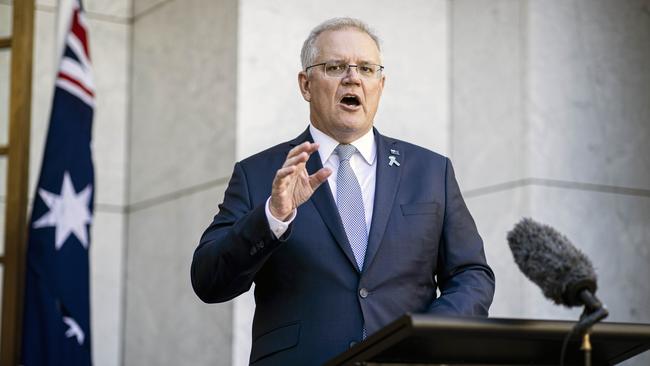
“At the end of the day the … question is how you’re going to manage risk and how you’re going to identify it and then apply the right solution to the risk that presents,” he said.
“I think as time goes on, we will need a more flexible approach that gives us more options for managing this.”
Mr Morrison said a similar system worked well for Australia in February and March when people returning from hot spots — particularly in China — were required to quarantine at home for two weeks.
“I’ve got to say, particularly among the Chinese-Australian community, where the risk was greatest — where people were returning from mainland China and even Wuhan at one point — that home quarantine was followed incredibly assiduously,” he said.
“That, as I’ve said on many occasions, proved absolutely vital in Australia’s success in managing the impact of that first wave.”
Mr Morrison said many countries had developed systems for assessing the risk of different travellers. For example, Denmark operated a traffic light assessment system and Greece had a triage algorithm.
TWO NSW CASES, 10 IN VICTORIA
NSW has not recorded any new locally-acquired coronavirus cases, for the fourth day in a row.
There were two new COVID-19 cases detected in returned travellers in the 24 hours to 8pm on Monday. However, the promising result reflected only 6,381 tests,
In a statement, NSW Health said people should “remain vigilant and come forward for testing immediately if symptoms like a runny nose, scratchy throat, cough or fever appear”.
Victoria recorded 10 new cases and seven more deaths in the past day.
It comes after the state recorded five infections yesterday, the lowest daily figure since June 12. The consistently low numbers mean Melbourne’s crucial 14-day average remains firmly below 20, standing at 18.2.
SCHOOL HOLIDAYS TEST BEFORE NSW RESTRICTIONS EASE
A fresh push is underway for NSW to double the number of patrons allowed in venues by relaxing the one person per four square metre rule.
Senior government ministers have held discussions with key industry groups and figures who are advocating for a one person per two square metre rule in light of reduced community transmission in the state.
The government had eyed reaching this position – which would boost the economy – by August or September, but was thwarted by the spread of the Victorian outbreak.
South Australia and Western Australia have already adopted a one person per two square metre rule, while Queensland allows one per two square metres in venues under 200 square metres.
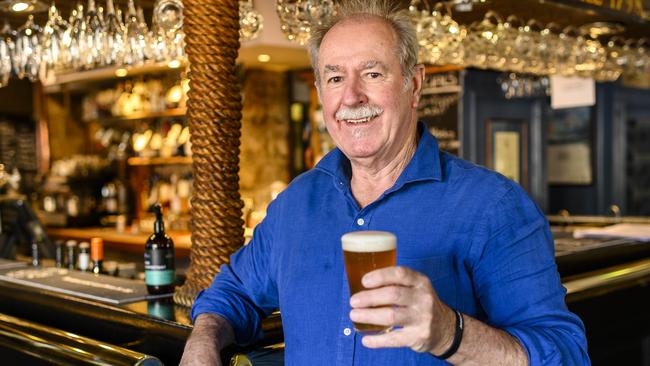
MORE NEWS
17yo who allegedly injured mum in crash has a record
Experts warn of social justice warrior kids turned bullies
Proposed wharf strike a ‘slap in the face’ to COVID unemployed
In NSW, one person per four square metres has been in place since May.
Racing and rugby league boss Peter V’landys, hospitality giants Justin Hemmes and Luke Mangan, and a suite of industry bodies have all thrown support behind a push to loosen the restrictions.
Tourism Minister Stuart Ayres, Treasurer Dominic Perrottet and Customer Service Minister Victor Dominello have led talks with industry groups on the matter.
Responding to questions last night, Premier Gladys Berejiklian said the government would ease restrictions where and when it was safe to do so.
“Let’s not get ahead of ourselves after a few days of zero cases,” Ms Berejiklian said.
“We already eased some restrictions last week and are going as fast as we can to help businesses, the economy, and jobs, but we need to make sure we do it at the right pace. We will ease restrictions wherever and whenever it is safe to do so, but unlike some other states we have to do it with open borders and will an eye on the situation in Victoria.”
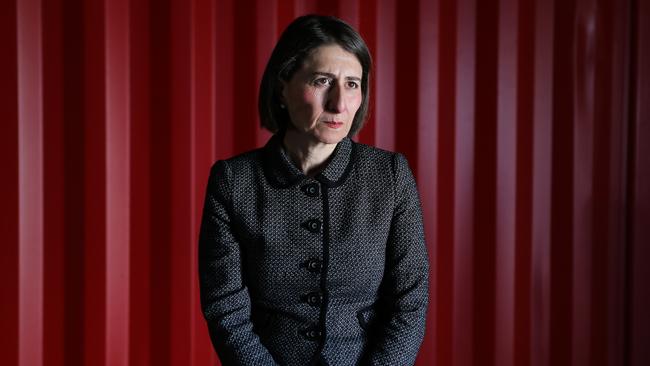
It is understood that if NSW can make it through the school holidays without a spike in cases, the matter will be high on the government agenda. One interim step mooted has been lifting the restrictions for outdoor venues, although key figures do not believe this goes far enough.
Mr V’landys said he hoped to see some movement on the restrictions soon, given the state’s decline in community transmission.
“There is no way Gladys Berejiklian or the NSW Government is going to let Queensland out-do them. Surely whatever Queensland can do we can do,” he said.
“We can’t call to open borders in one breath but constrain our own economy at the same time.”
Complete our survey and help NSW rebound from the pandemic
Mr Mangan said small restaurants could take in up to $20,000 more a week if capacity limits were relaxed.
He said changing the one person per 4 sqm rule would be a COVID safe way to provide a much-needed boost to the hospitality industry.
“The government keeps going on about jobs, jobs, jobs, yet it seems the restaurant businesses are being left out a bit. We’re turning away customers because we’re only at 50 per cent capacity,” he said.
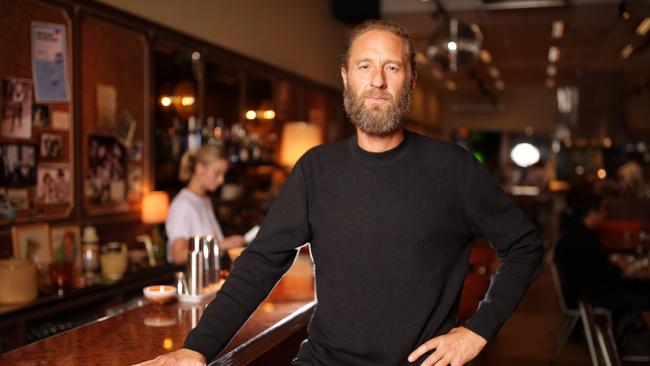
Hospitality magnate Justin Hemmes said easing restrictions was vital to reviving the industry, particularly as JobKeeper is being wound back.
He said it would particularly benefit venues which have found it unviable to open under current restrictions.
Restaurant & Catering Industry Association CEO Wes Lambert said changing the rules was “commensurate” with NSW’s community COVID transmission. “Ultimately if you’re at or near zero community transmissions, and you’re tracking and tracing and doing an amazing job, like the NSW government is, there has to be a point in time where you move to the next step,” he said.
The AHA said the change would allow pubs to employ an extra 15,000 staff and bring NSW in line with Western Australia, South Australia, and Queensland.
“With case numbers now consistently low in NSW we’re confident we can safely move to one person per 2sq with seated patrons,” AHA NSW Director of Liquor and Policing John Green said.
A ClubsNSW spokeswoman said food and beverage revenue was currently down 60 to 70 per cent in clubs across NSW.
SAD END AS BEER BATTERS THE FISH
Brewers forced to tip out 20 million schooners of beer, much of it flowing out of drains into the ocean, during the COVID-19 lockdown are calling for a tax freeze to keep pubs and clubs afloat.
Coopers, Lion and Carlton & United Breweries have joined forces to ask for a cut or freeze to the excise on beer sold in the nation’s venues to make a drink more affordable.
At the start of the lockdown Lion had to dump 4.9 million schooners of beer in keg returns from NSW pubs. Sales are still below normal levels.
Lion salvaged some value by tipping the beer through a wastewater treatment plant, generating biogas used to fire up breweries’ boilers. Other brewers poured their hard-earned beer down the drain.
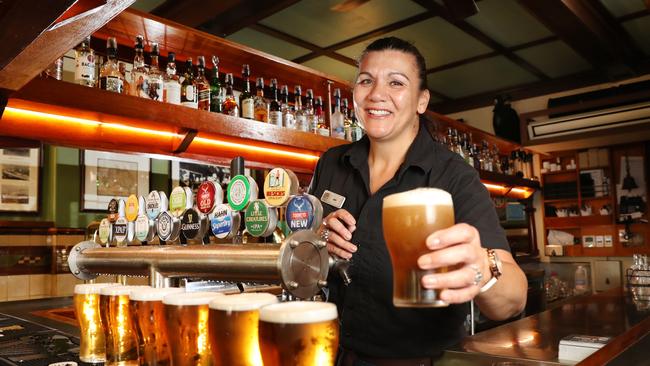
Beer only lasts 90-120 days in a keg and many pubs had stocked up for St Patrick’s Day just before the lockdown was announced in March.
The $2 billion a year alcohol excise accounts for about $17.32 of a $52 carton of beer.
Brewers Association of Australia chair Peter Filipovic said COVID-19 had significantly impacted the hospitality sector, which was the brewing industry’s biggest customer.
“A cut, or at the very least, a freezing of excise will give hospitality businesses a chance to get back on their feet as beer is the most consumed alcoholic beverage in Australia’s licensed venues,” he said.
“The tax on beer has gone up twice annually for the past 35 years forcing Australians to pay the fourth highest beer tax in the industrialised world.”
With higher production costs for packaging of bottled beer, kegs already have a better margin for publicans, so if the excise was dropped it would enable many to keep staff employed until customers return to normal levels.
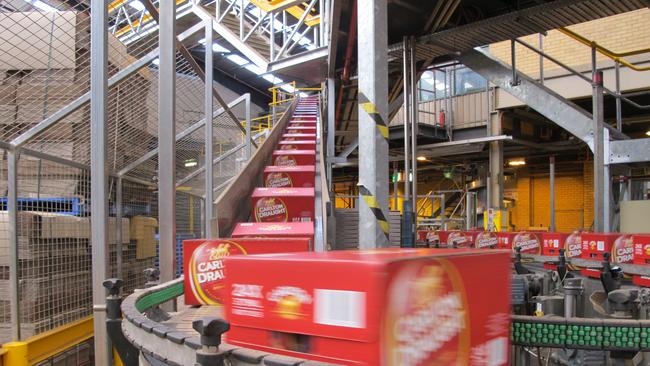
Owner of the Fortune of War pub in The Rocks, Stephen Speed, said a freeze or cut to the beer excise would ease pressure on razor-thin margins.
“Every little bit makes a difference,” he said. “At the moment we’re trading about 30 per cent of pre-COVID revenues and not all of our staff qualified for JobKeeper so our wage bill is still very high.”
Mr Speed said while weekend and lunchtime patronage was slowly returning, the impact of the shutdown was still significant.
“At night time from Monday to Thursday the pub’s a near non-event. We’re closing at 8 or 9pm, whereas normally it was midnight,” he said.
WORLDWIDE DEATH TOLL PASSES 1 MILLION
The coronavirus has killed more than one million people across the globe as reported total infection numbers surpass 33 million.
As of Sunday, the pandemic had claimed 1,000,009 lives worldwide, with the US bearing the biggest portion of fatalities with 200,000 deaths.
Brazil, India, Mexico and the UK also had mammoth death tolls.
The deadly virus has not yet reached the severity of the Spanish flu pandemic of 1918, which infected 500 million people, one-third of the planet’s then population, in just two years and killed an estimated 20 to 50 million people.
DOCTORS THE NEW ROCK STARS
Epidemiologists have emerged as unlikely “rock stars’’, leading to a spike in enrolment inquiries for the specialist medical field.
Universities have reported that public health subjects and courses are in demand as students respond to the pandemic.
Mid-year intakes at Melbourne and Monash universities have more than doubled this year, compared to 2019.
Names such as Mary-Louise McLaws, Peter Collignon and Tony Blakely have become familiar as the nation seeks scientific understanding of the pandemic.
Monash deputy dean of medicine Michelle Leech said there was an increase in the number of people who are interested in public health.
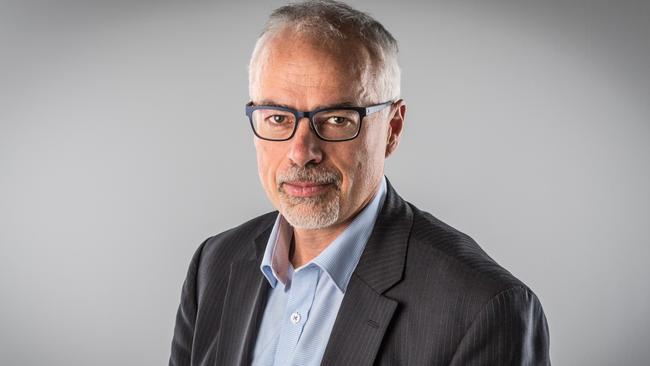
“I think, as well the fact that epidemiologists per se and public health experts are rock stars, the value of them in the pandemic is so obvious.
“The power of public health intervention is really before our eyes.’’
The pandemic had also shown the medical profession in a different light, she said.
Catherine Bennett, Deakin University’s chair in epidemiology, said some personalities were drawn to public health.
“People who have the correct wiring in their brain, so people who are often naturally good with numbers, are problem solvers, who like Detective novels.’’ Professor Bennett said.
The area would be a growth area with the potential for jobs, she said.
“We’ve had a 24 per cent increase for undergrad public health and health promotion courses.’’
